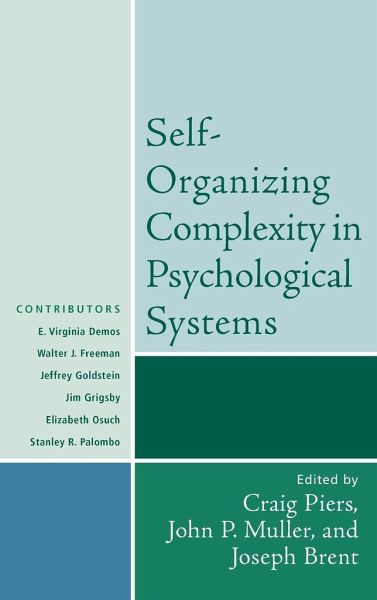
Self-Organizing Complexity in Psychological Systems

PAYBACK Punkte
60 °P sammeln!
Self-Organizing Complexity in Psychological Systems offers a contemporary perspective on the mind through a compilation of original chapters written by some of the leading researchers in the area of complexity theory. In each of the chapters, the authors attempt to use complexity theory to inform and in some cases reformulate existing theories of brain function (Freeman; Grigsby & Osuch), personality (Grigsby & Osuch), psychic organization and structure (Goldstein; Piers), human development (Demos), psychopathology (Palombo; Piers) and psychotherapeutic change (Palombo).














